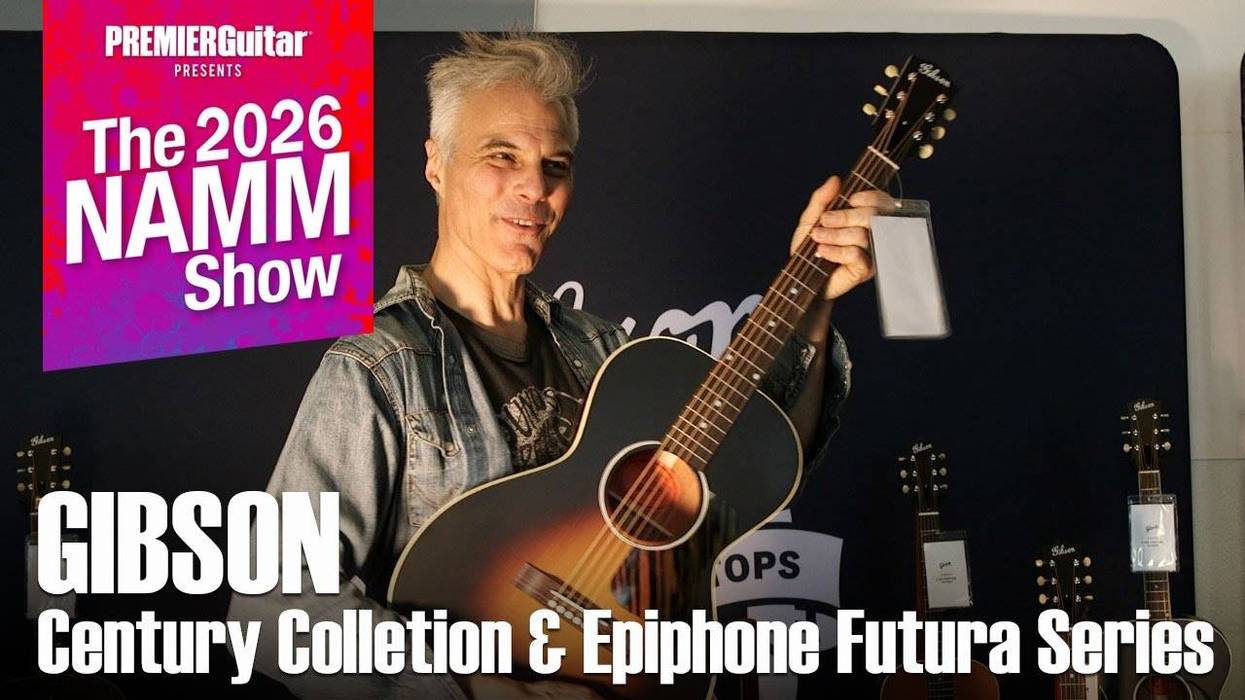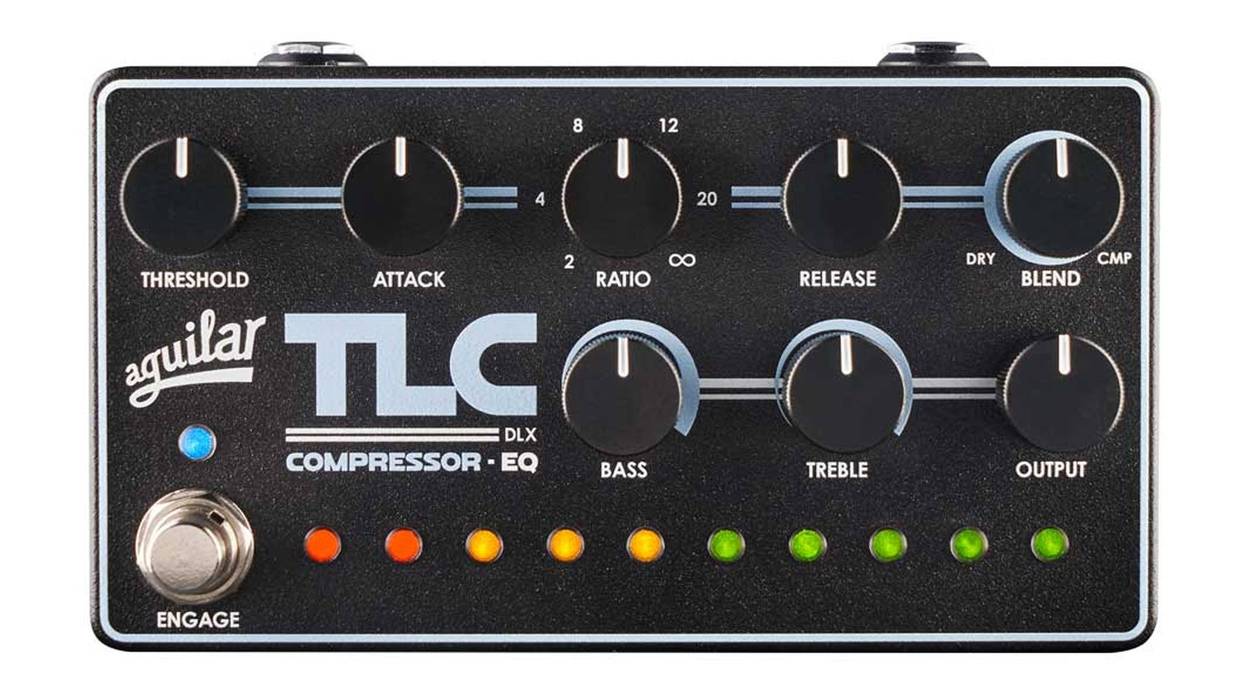From creating animal cries for a genius like Jimi Hendrix to Tonight Show guitarists attempting hipness, the wah-wah pedal has been used and abused across a wide variety of musical genres. But no one, including Jimi, used it more expressively than Melvin “Wah Wah Watson” Ragin.
You need no further proof than the album version of “Papa Was a Rolling Stone” by the Temptations. Watson (no one called him Ragin) sets the tone during the 4-minute intro. Even before the vocal enters he has used the “whacka-whacka” of his Cry Baby to turn the rhythm around multiple times, add crackling punctuations, and create crescendos that sound like a piece of sheet metal being shaken. When the lead voice finally intones, “It was the third of September,” it is immediately answered by Watson’s fleet foot pulsating the pedal, portending the drama to come. Before the song is over, the guitarist has wrung from this simple effect an astonishing variety of rhythmic chords, tonal colorations, and single-note exclamations.
“Papa Was a Rolling Stone” was only one of a long string of soul, funk, and pop hits featuring Watson’s signature riffs, sounds, and grooves—a list that includes Marvin Gaye’s “Let’s Get It On,” “Smiling Faces Sometimes” by the Undisputed Truth, Quincy Jones’ “Body Heat,” Off the Wall by Michael Jackson, Rose Royce’s Car Wash, and hundreds of other singles and albums.
Melvin Ragin was born in Richmond, Virginia, on December 8, 1950. During his years there he was in a local group, the Montclairs, who recorded a single in the 1960s. The group’s drummer Jerome “Bigfoot” Brailey would later be inducted into the Rock and Roll Hall of Fame as a member of P-Funk.
Watson relocated to Detroit, where, by age 20, he made his first major record—Edwin Starr’s “Stop the War Now” with legendary Motown producer Norman Whitfield. Watson quickly became an essential part of Whitfield’s crew, contributing guitar, writing, and production ideas to sessions with the Four Tops, Martha Reeves, the Supremes, and dozens more. He also became a member of the 12-piece Motown band led by Hamilton Bohannon that provided backing for many of the label's acts on tour. It was during this time that he began to develop the wah sounds and techniques that would become his signature, and from which he derived his nickname, “Wah Wah Watson.” Artist/producer Stu Gardner, a fellow Richmond native who worked with Watson at Motown, was quoted in Richmond Magazine as saying, “He had rhythm licks that no one else could play but him.”
Watson worked with other producers at Motown, including Holland-Dozier-Holland, Frank Wilson, and Johnny Bristol, but the person who had the biggest influence on him was Whitfield, the man behind the epic Temptations tune that so prominently featured his wah mastery. When Motown moved to Los Angeles in 1973, Whitfield flew him out from Detroit to play on a session, and within a few weeks Watson was plugged into L.A.’s studio scene, never to leave.
If the guitarist had retired that year, after recording “Let’s Get It On” with Marvin Gaye, his reputation as the premier wah-worker of all time would already assure him a place in the history books. But on that Gaye session Watson met Herbie Hancock, who enlisted him to work on the soundtrack for the movie Death Wish. Thus began two decades of collaboration, during which Watson would play on, co-write and/or co-produce classic Hancock albums, including Man-Child (1975), Secrets (1976), V.S.O.P. (1977), Feets, Don’t Fail Me Now (1979), and Mr. Hands (1980). In addition to guitar, Watson often contributed bass, sampling, sequencing, synthesizer, and talk box. During this period he would release his only solo record, Elementary, in 1976.
Watson also toured with an eclectic array of artists. In the summer of 1983, he was a member of the band on Marvin Gaye’s Midnight Love tour, which unfortunately would prove to be the singer’s last. Though work fell off in the heavily synthesizer-based late ’80s, the ’90s saw a resurgence of soul-inflected music, leading to Watson recording and touring with younger artists like Meshell Ndegeocello, Maxwell, Lisa Stansfield, Angélique Kidjo, and Brian McKnight. Stuart Matthewman, who partnered with Sade to sell more than 50 million albums, was quoted in an interview with the Red Bull Music Academy as saying, “I wanted to sound like Wah Wah. He was my favorite guitar player.”
For the majority of music fans, the most famous wah-wah part on record remains Skip Pitts’ iconic work on the 1971 Isaac Hayes tune “Shaft.” Watson himself has said, “What changed my life about the approach I would take was after I heard ‘Shaft.’” But Watson pushed the pedal far beyond Pitts’ basic, albeit funky, rhythm work. As rhythmically complex and exciting as Watson’s rocking of the wah’s treadle could be, perhaps an even more personal sound was his use of delay in conjunction with the filtering effect of the wah. The guitarist would add a prominent, delay (roughly 230 ms) with two or three repeats, and then slide his finger from the upper reaches of the fretboard down, while rapidly tremolo picking. This would create an evocative glissando effect, instantly signaling a guitar part as being the work of Wah Wah Watson. Sometimes he would add phasing or a bit of drive to help make the pedal as much a creator of textures as rhythm.
Watching Watson perform finds the big man seated but far from static. His head shakes back and forth and bobs to and fro, while his left shoulder rises and falls. There is a palpable joy in his movements—one that translates to the sounds he is conjuring. The sadness of his passing is compounded by the thought that, had he had a few more healthy years, he might have brought that joy to collaborations with the current group of funk revivalists. Bands like Snarky Puppy, Vulfpeck, Butcher Brothers, and the Ezra Collective, who grew up on the Herbie records Watson enhanced, would all have been suitable platforms for his soaring, funky fairy dust.
Performing with Herbie Hancock's Head Hunters, Watson shows his talent for creating a hook, along with string scrapes, shrieks, and great rhythmic interaction—much of it without wah wah.
In this rare clip from 1995, Wah Wah Watson makes his guitar honk like a clavinet while onstage with Meshell Ndegeocello.
Listen to Wah Wah Watson’s 1976 track “Goo Goo Wah Wah,” to hear him catalog his techniques, while making the guitar talk.


















![Rig Rundown: Russian Circles’ Mike Sullivan [2025]](https://www.premierguitar.com/media-library/youtube.jpg?id=62303631&width=1245&height=700&quality=70&coordinates=0%2C0%2C0%2C0)
















![Rig Rundown: AFI [2025]](https://www.premierguitar.com/media-library/youtube.jpg?id=62064741&width=1245&height=700&quality=70&coordinates=0%2C0%2C0%2C0)











